A Kemp’s ridley sea turtle, the most endangered species of sea turtle, made her way onto a beach in Destin, Florida, to nest on Sunday morning, April 28, 2024, just days before the official start of the sea turtle nesting season.
- According to Jessica Valek, Coastal Resources Coordinator at Destin-Fort Walton Beach Tourism, the turtle was spotted around 10:30 a.m.
Valek rushed to the scene within 10 minutes of receiving the call. “When I got here, she had just finished digging her egg chamber and then she started laying her eggs.”
Kemp’s ridley sea turtles are known to spend most of their lives in the Gulf of Mexico, but they typically nest on the western side, particularly in Mexico and Texas. They also tend to nest in large groups during the day.
- “Her nesting here during the day is not rare or surprising. We would expect a Kemp’s Ridley nest to come during the day. But having it happen on our beach is what makes it rare,” Valek explained.
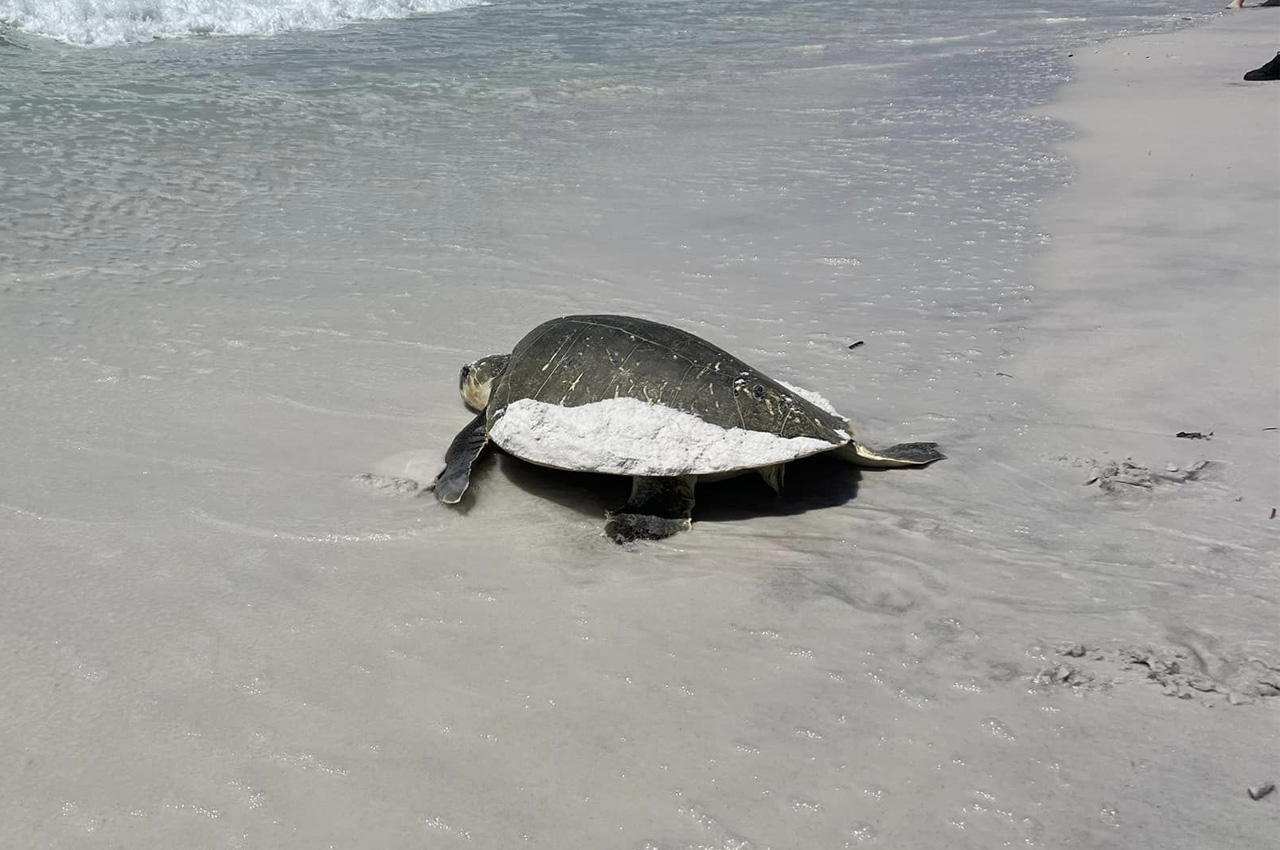
With only an estimated 22,000 Kemp’s ridley sea turtles remaining in the world, this event is particularly significant. The sea turtle nesting season officially begins on May 1st, but there have already been reports of leatherback nests and a loggerhead false crawl in the panhandle.
Valek advises beachgoers who come across a nesting sea turtle to first call the Florida Fish and Wildlife Conservation Commission’s wildlife hotline at 888-404-3922. She also emphasizes the importance of keeping a distance of at least 50 feet behind the turtle to avoid obstructing her vision and causing distress.
- If the encounter happens at night, it is crucial to refrain from using any lights, including flash photography and videography, as it can harm the sea turtle.
How you can help during nesting season:
Please make sure you keep our beaches safe for our nesting sea turtles by removing all of your belongings and trash at the end of the day, filling in your holes, knocking down your sandcastles, and using only red turtle-friendly flashlights on the beach at night. You can get a flashlight for FREE at the Visit Destin-Fort Walton Beach Welcome Center.
All of the work conducted by the Sea Turtle Patrol Team, including what was done today, is permitted under MTP-24-251. Members of the South Walton Turtle Watch were also involved in today’s event. It is illegal to disturb a sea turtle, her nest, and her eggs.

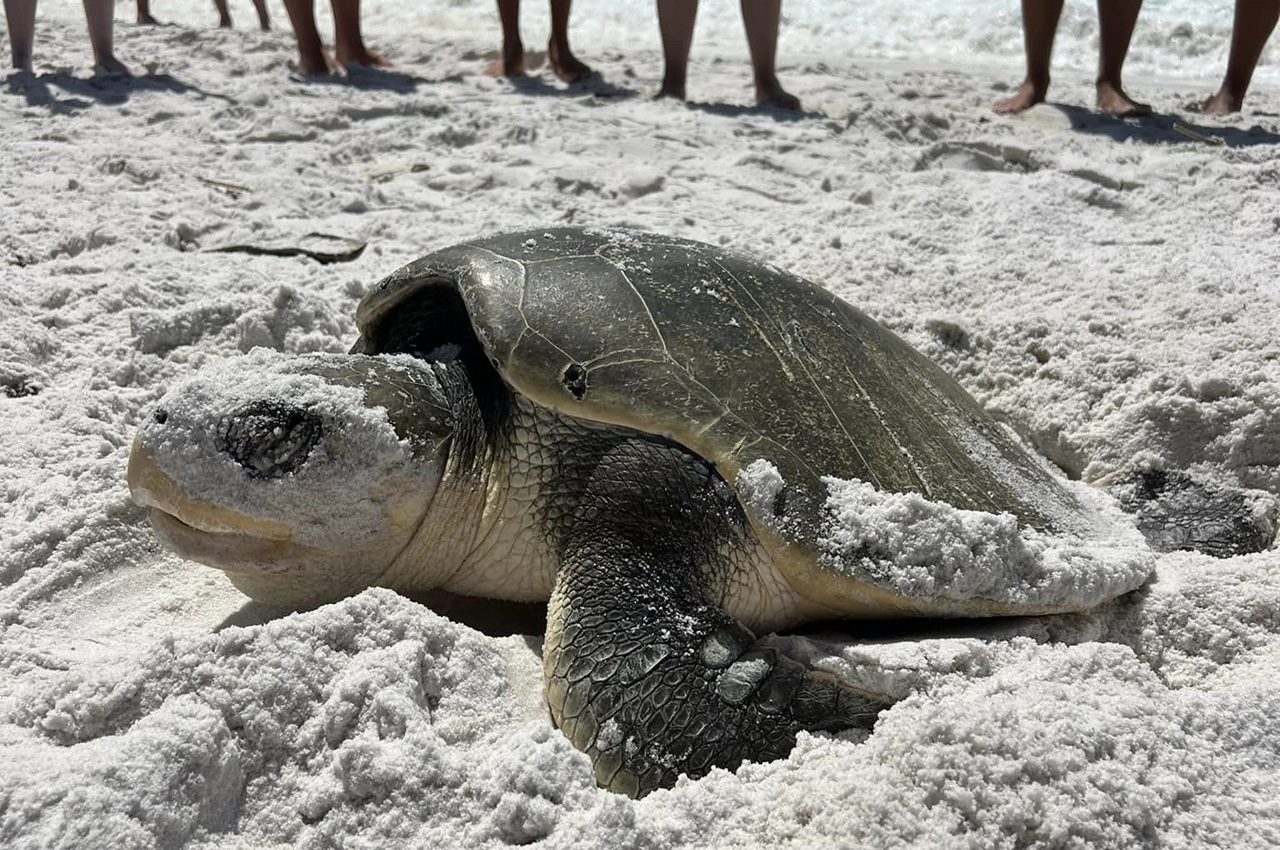
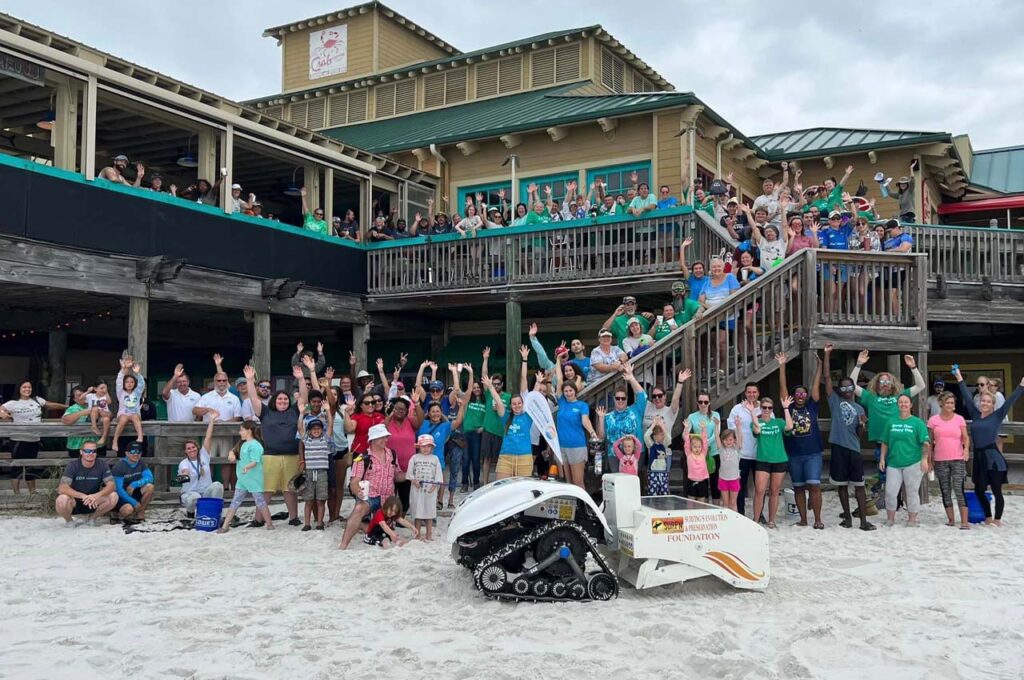
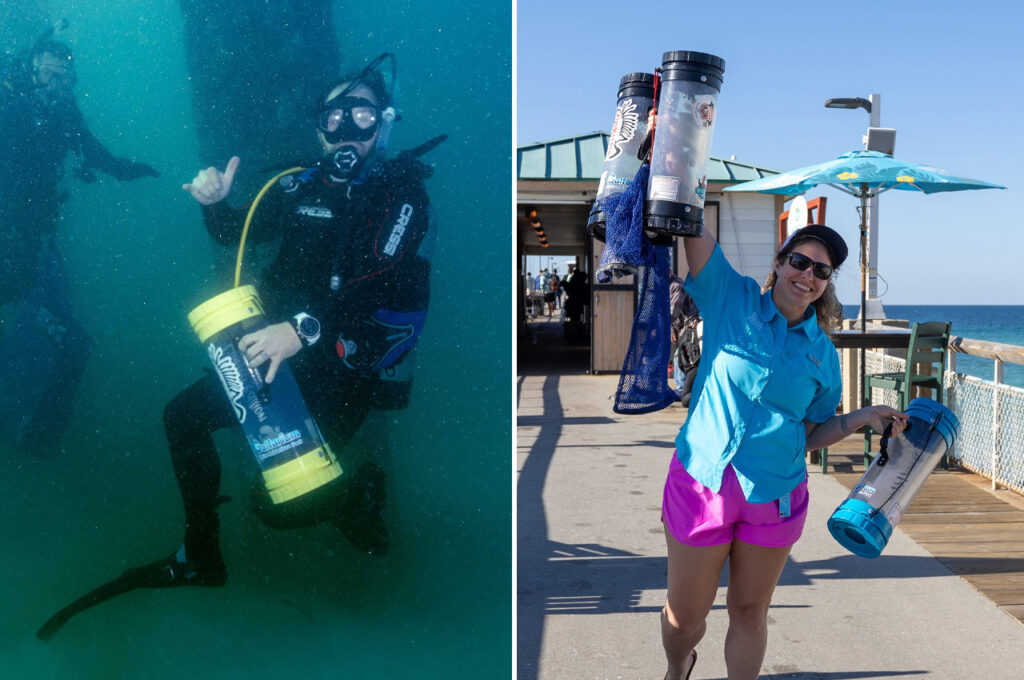
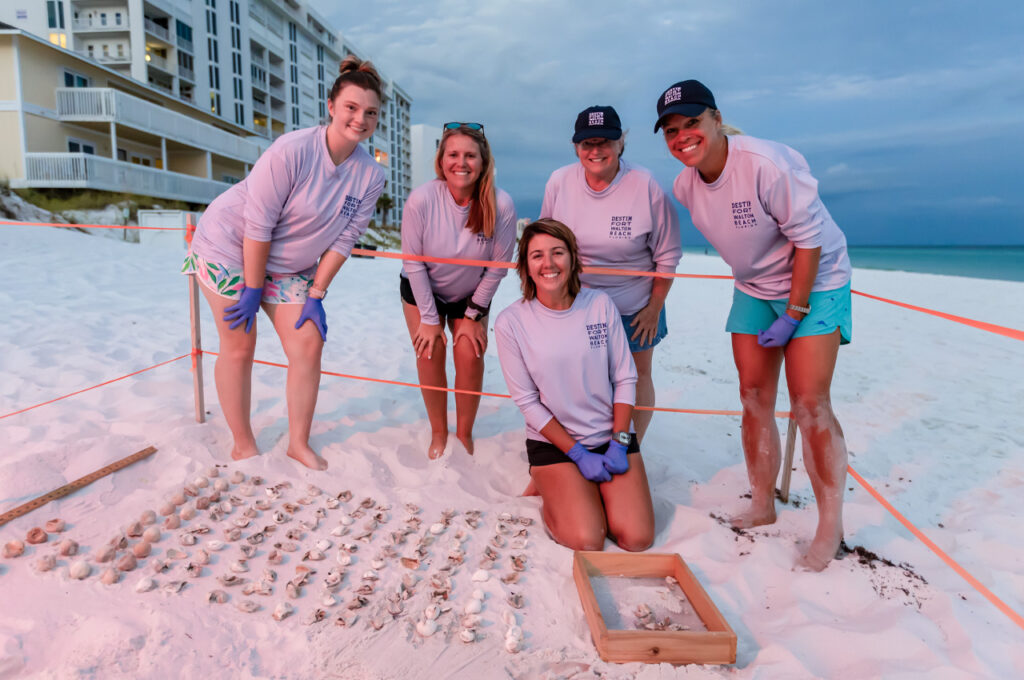
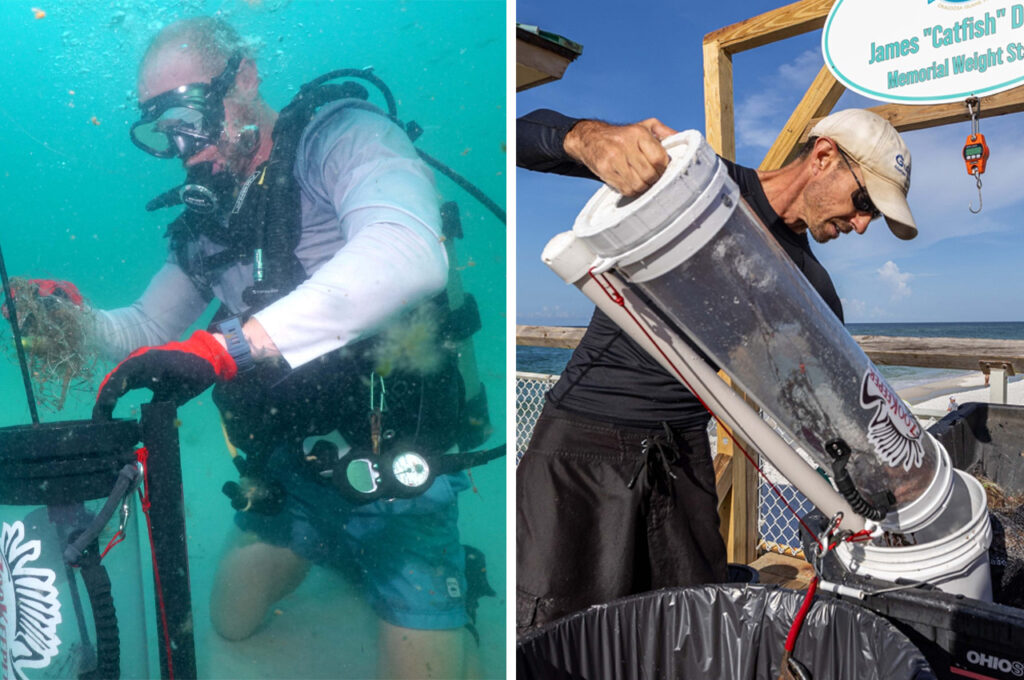
One Response
another of our creator God’s miracles ! ! Thank you Jared for your articles and work.